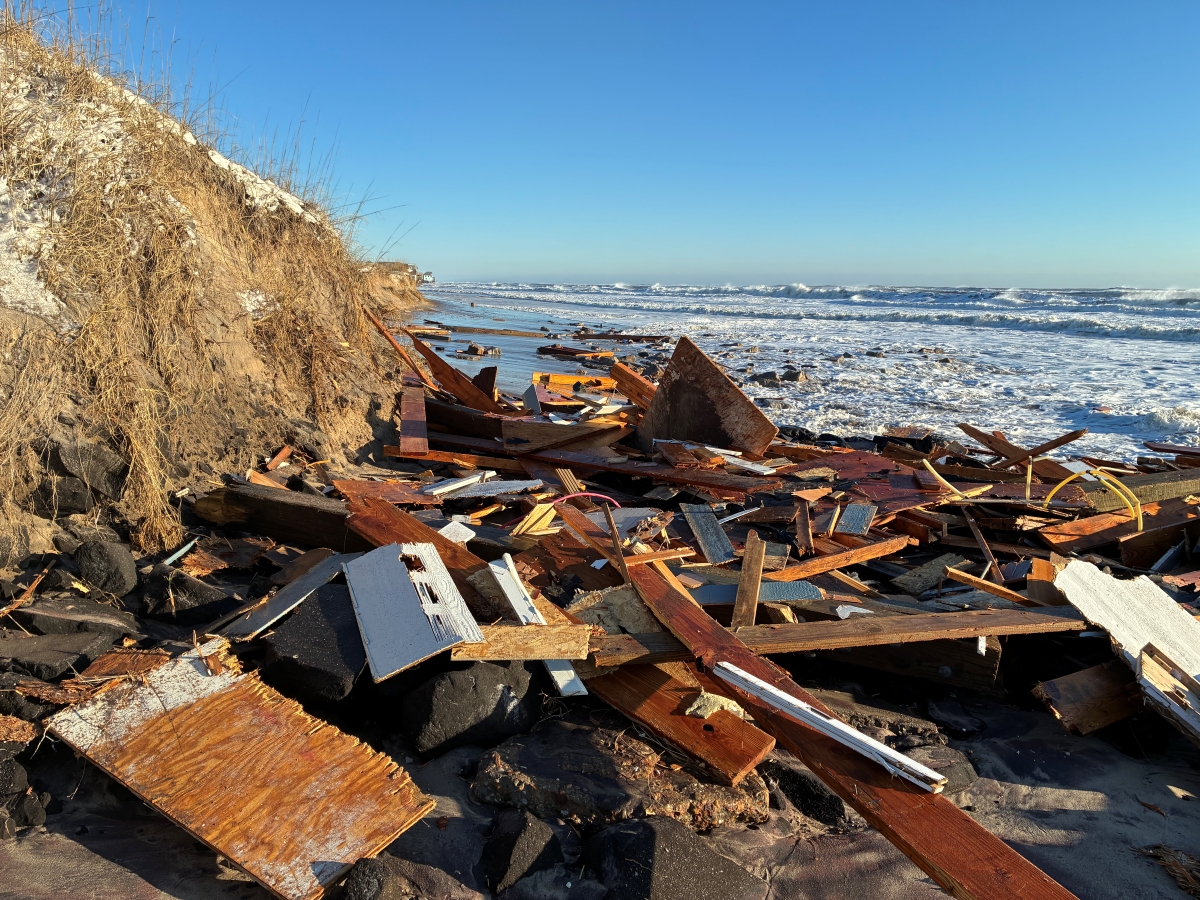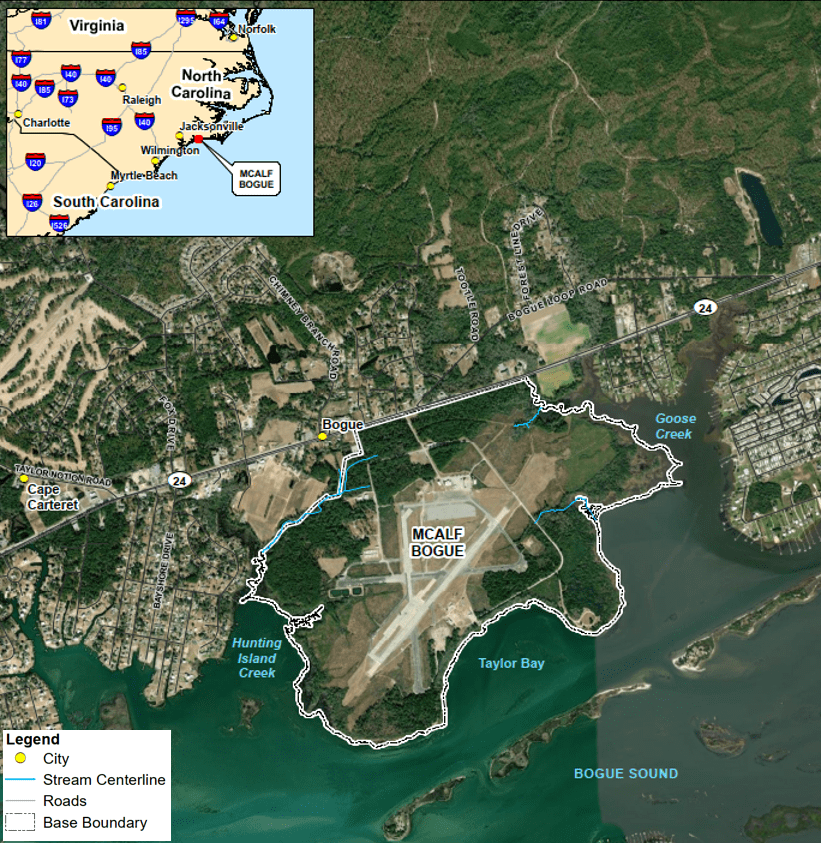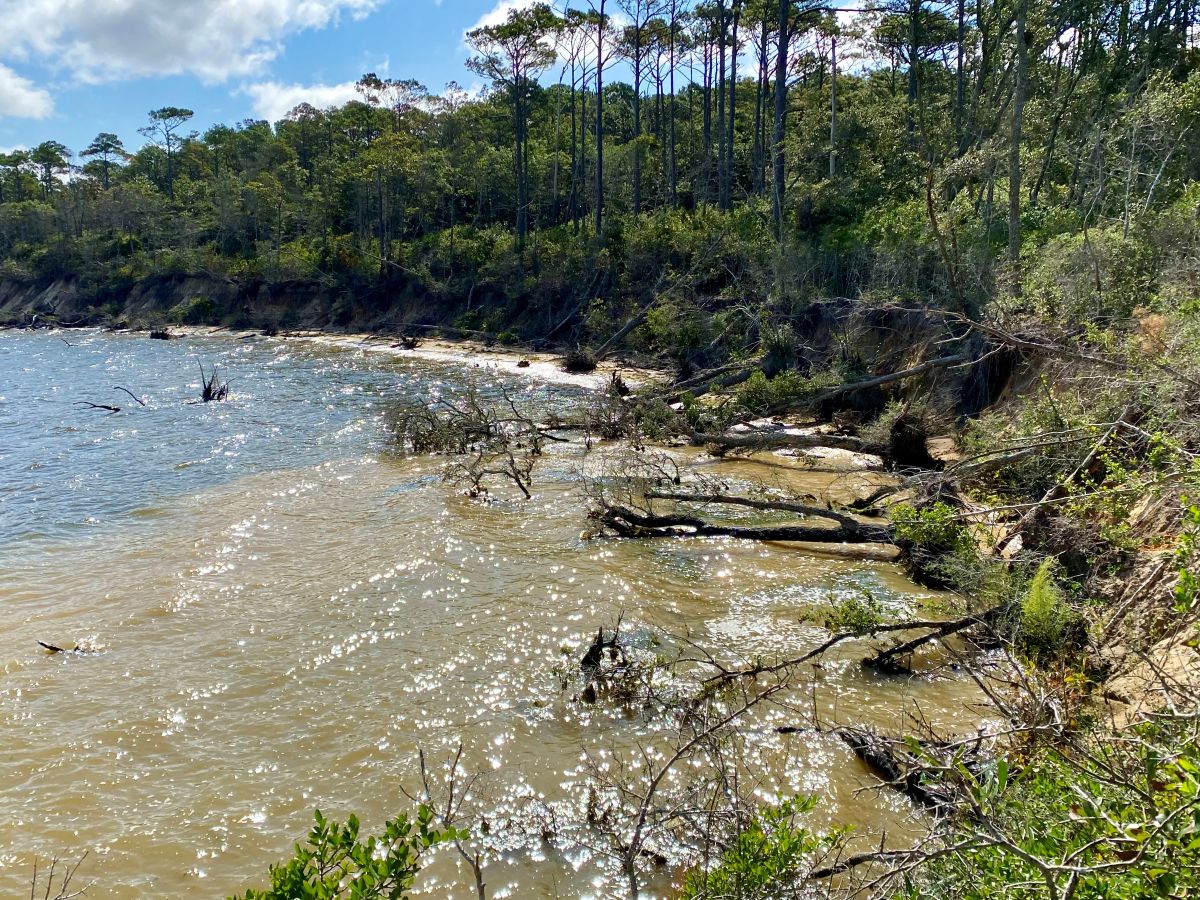RALEIGH – Readied for introduction to this year’s session of the N.C. General Assembly, which starts next week, are a slew of bills that weaken or eliminate environmental protection, including a measure that could possibly end state requirements for some on-site stormwater controls and another that asks a federal agency to double the trigger to repair or restore stream banks damaged by dredging and filling.
Ahead of the session several joint House and Senate committees have been preparing potential legislation. Last week, the Environmental Review Commission, the legislative committee that acts as the main gatekeeper for environmental policy, voted on a dozen prospective measures.
Supporter Spotlight

At the meeting commission members said that the aim of the election year session is to be efficient and not to delve to deeply into policy. All the bills the commission considered would weaken existing protections. Environmental advocates say some of the proposals represent major changes to the state’s approach to water quality and other protections.
Among established regulations in the crosshairs is the state’s responsibility in enforcing section 401 of the federal Clean Water Act. That section of the law requires that any applicant for a federal permit must first get the state to certify that any discharges from the proposed activity won’t degrade water quality or violate water-quality standards. The draft bill removes on-site stormwater controls as a possible source of downstream pollution unless the controls are needed to meet state or federal laws.
The draft bill goes so far as to require the N.C. Environmental Management Commission, the state’s main regulatory body, to change state water quality rules to reflect the weakened standard, eliminating some on-site controls unless they are needed to meet specific state or federal laws.
Cassie Gavin, director of Government Relations for the state chapter of the Sierra Club, said a provision prohibiting the state from requiring on-site stormwater controls in certain cases, loosens important statewide water quality rules. Gavin said the effect could mean that the controls would no longer be required for many of the state’s waters.
“This could have an impact on overall water quality,” she said.
Supporter Spotlight
In an email exchange, John Dorney, a former supervisor with the since renamed N.C. Department of Environmental Quality, said ambiguity in the provision could lead to different interpretations, especially for the coast.

Dorney said that under the most-broad interpretation of the provision, requirements for on-site controls could be eliminated for all shellfish and sensitive water which are protected under state rules and not state laws.
But Dorney said even the more narrow interpretation, that would require controls for those waters, would have major consequences because of what could happen upstream.
“It really depends on how this law is interpreted,” Dorney said. “For the coastal areas, if we assume that all commercial shellfishing designations (SA waters) and nutrient sensitive waters designations (NSW) are designations under state law, then the freshwater watersheds of all the streams that drain to SA waters could be exempt from on-site stormwater management when development occurs,” he said.
Dorney said that the change means “development in the upstream freshwater portion of the watershed could have devastating effects on downstream SA waters due to stormwater runoff and its related pollutants.”
The stormwater provisions grew out of a Department of Environmental Quality study requested by the legislature in which the department questioned the current rules and suggested dialing back requirements for stormwater controls under the 401 program. The report noted that South Carolina only requires controls in its coastal region.
More Proposals

Other provisions approved last week for the final ERC report include a modification of public health warning criteria that restricts warning information on private drinking wells only to tests for constituents that have a state or federal standard.
The commission also wants the department to submit written comments this year to the Army Corps of Engineers while it reviews its general permit on stream dredging and filling. The bill would require the department to ask the Corps to double the threshold for requiring mitigation for the loss of intermittent and ephemeral stream bed to 300 linear feet.
The commission also proposed several department studies before the 2017 legislative session.
Citing concerns about the process for water transfers within sub-basins along the coast, the commission is requesting a study looking at whether requirements for the transfers should be adjusted in certain geographic and topographic regions.
DEQ would also be asked to study the effectiveness of the state’s nutrient management strategies and whether to adjust the size of riparian buffers for intermittent streams.
The commission also authorized a study by the state Department of Transportation on any project cost savings from last year’s changes to the State Environmental Policy Act. The DOT is also asked to recommend any additional changes to state environmental law.
Yet More to Come

Although the commission proposals are the first set of environmental provisions for the session, they’re not the last. Commission members briefly added and then rescinded a provision that would do away with the state’s electronics recycling program and lift the ban on electronics, including television sets, in the landfills.
A DEQ report said that the cost of disposing of recycled materials, especially older, CRT televisions, has led to a buildup.
Commission Co-Chair Rep. Jimmy Dixon, R-Duplin, suggested lifting the ban saying that the materials would be better in lined landfills than in a warehouse. Rep. Pat McElraft, R-Carteret, said she agreed, but suggested lifting the ban only for televisions.
Dixon’s provision passed, despite objections from co-chair Rep. Chuck McGrady, R-Henderson, but Dixon later asked for the vote to be rescinded.
Dixon said the landfill ban proposal will likely be taken up during the discussions on a regulatory omnibus later in the session.
Also studied by the commission but not in its report are plans for changes to the coastal stormwater program. The commission received a 53-page DEQ study outlining potential modifications to current standards on April 1, but has not discussed the department’s findings.
McElraft told Coastal Review Online that the legislature would continue to study coastal stormwater issues.







